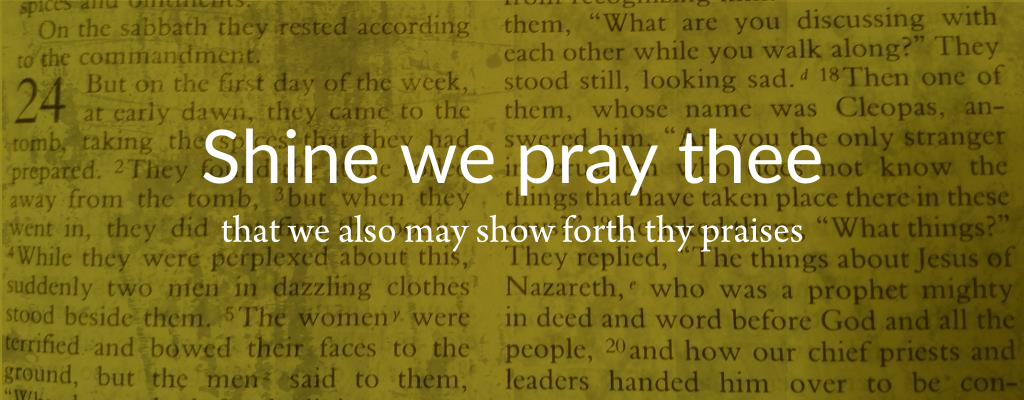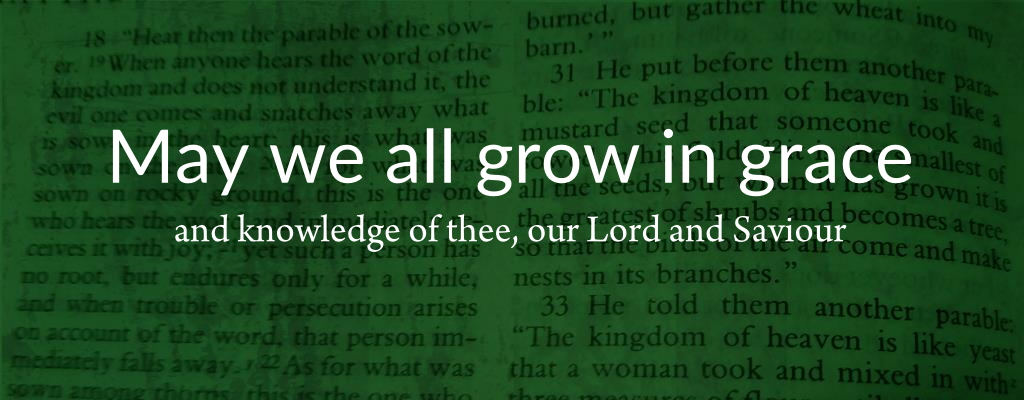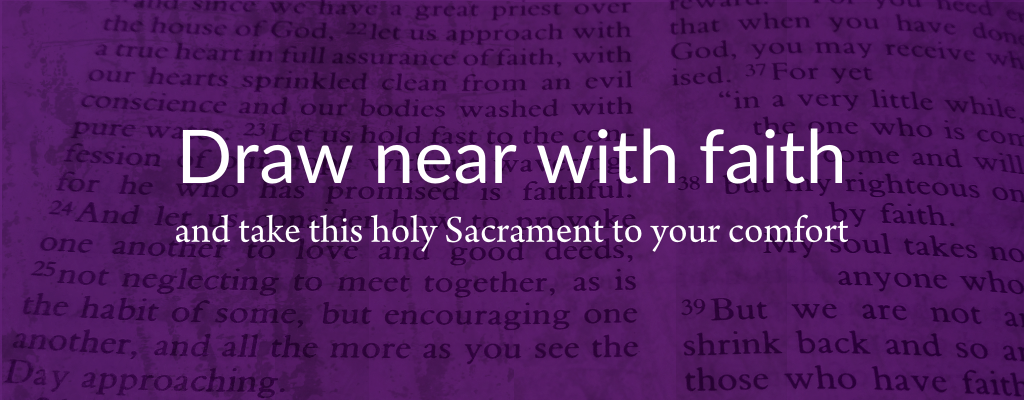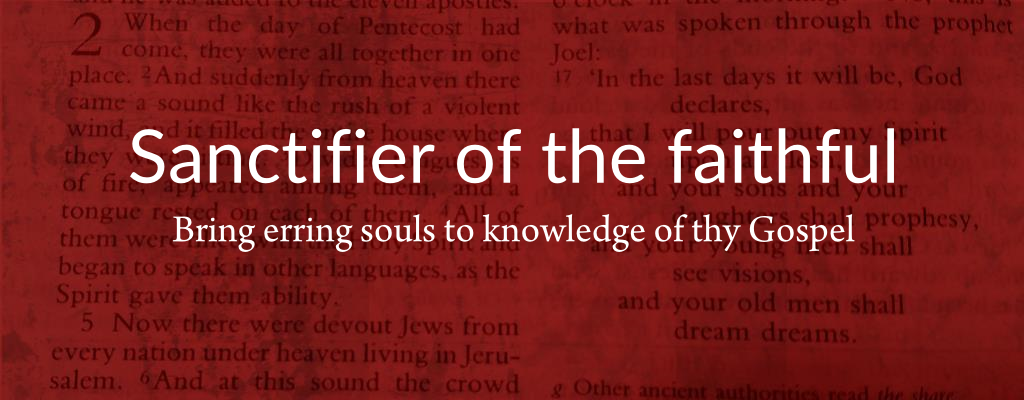Anglican Theology: Scripture, Tradition and Reason
The Prayer Book Society has as one of its main goals the promotion of traditional Anglican theology. This begs the question, though, what is Anglican theology, and more broadly, what is Anglicanism itself? The sad reality is that these days, the distinctives of Anglicanism are becoming less and less important and emphasized in the daily life of Anglican parishes.
This failure to promote what unites us as Anglicans is one of the contributing factors to the diminishing of our understanding of the Church (our ecclesiology, to use the technical term), because without this broader view of what unites Anglicans globally, and what has historically defined Anglicanism, individual Christians are left to establish their own criteria for what might link or differentiate them from other Christians.
It is easy to see how in this situation, an Anglican Christian might question the importance of being Anglican. While there is much that unites us with other Christians, this failure to “delve deeper” into those areas where there is disagreement allows Christians to leave their faith at the surface level and often, when challenged in their faith on these deeper matters, they are more than willing to simply move to another church—there is nothing unique about Anglicans in their mind, so no reason not to move elsewhere. Floating at the surface level of belief, the diversity of the human response to the Gospel is weakened.
Where then do we look to find what makes Anglicans distinct from other Christian traditions? What does Anglicanism offer to Christians as distinct from other Christian fellowships? The answer, unsurprisingly, can be found throughout the Book of Common Prayer.
Holy Scripture and the Anglican Formularies
Richard Hooker is one of the first Anglican authors to articulate clearly the principle of Anglican theology being governed by Scripture, Tradition and Reason in his Laws of Ecclesiastical Polity published in the 1590s. In it, Hooker wrote:
Be it in matter of the one kind or of the other, what Scripture doth plainly deliver, to that the first place both of credit and obedience is due; the next whereunto is whatsoever any man can necessarily conclude by force of reason; after this the Church succeedeth that which the Church by her ecclesiastical authority shall probably think and define to be true or good, must in congruity of reason overrule all other inferior judgments whatsoever. (Book V, 8:2).
First and foremost, Hooker argues, Anglicanism is rooted in the primacy of Holy Scripture. Of secondary importance are traditions of the Church, namely the writings of the early Church fathers and mothers throughout the Catholic Church, and reason. Reason, however, does not mean that what any individual concludes holds equal weight with the conclusions of the Church, but rather refers to those conclusions drawn within the local Anglican tradition, and put forth in what are called the Anglican formularies. In no way does Anglicanism accept that Tradition or Reason, let alone the reasoning of an individual, can over rule Holy Scripture. Article XX of the Thirty-Nine Articles makes this explicit where it says the Church has no authority to promote any policy contrary to Holy Scripture.
The formularies are three documents that outline the understanding of our faith in the Anglican tradition, and are the Book of Common Prayer 1662, the Ordinal and its preface, and the Thirty-Nine Articles of Religion. The Ordinal, which is the rites for the ordination of deacons, priests and bishops, was not an integral part of the Book of Common Prayer 1662, but has been incorporated into local revisions such as the 1962 Canadian Book of Common Prayer.
The Canadian Solemn Declaration
The Solemn Declaration was a document promulgated at the first General Synod in Canada in 1893, and defined the bonds of communion between what would become known in modern times as the Anglican Church of Canada and the Church of England. It provides a number of key reminders of what it means to be a Canadian Anglican, and what distinguishes us from other Christians and what unites us to the Anglicans outside of our own province (speaking in ecclesiological terms, the Anglican Church of Canada is the province of Anglicanism which covers the geographical territory of the country of Canada). The Solemn Declaration is printed in the Book of Common Prayer on page viii. It is a brief statement that contains a number of important points which canonically in the Anglican Church of Canada continue to define the limits of our autonomy within the greater Anglican fellowship and remains a canonical limit on the authority of the General Synod of the Anglican Church of Canada.
The Solemn Declaration begins stating:
We declare this Church to be, and desire that it shall continue, in full communion with the Church of England throughout the world, as an integral portion of the One Body of Christ composed of Churches which, united under the One Divine Head and in the fellowship of the One Holy Catholic and Apostolic Church, hold the One Faith revealed in Holy Writ, and defined in the Creeds as maintained by the undivided primitive Church in the undisputed Ecumenical Councils; receive the same Canonical Scriptures of the Old and New Testaments, as containing all things necessary to salvation; teach the same Word of God; partake of the same Divinely ordained Sacraments, through the ministry of the same Apostolic Orders; and worship One God and Father through the same Lord Jesus Christ, by the same Holy and Divine Spirit who is given to them that believe to guide them into all truth.
The first section covers points of unity with Anglicans abroad. It clearly states that we are a part of the One, Holy, Catholic and Apostolic Church, under the authority and headship of Christ himself, that our faith is defined by the primary of Holy Scripture and as interpreted by the ecumenical creeds and councils of the Church, that we receive the sacraments and worship under the authority of Bishops, priests and deacons. This statement not only speaks to what unites us with other Anglicans, but also with many other non-Anglican Christians who have maintained Catholicity with the doctrines and faith of the early Church.
The Solemn Declaration continues in the second section, speaking more clearly on what distinguishes us as Anglicans and how the Church in Canada will maintain unity in these Anglican distinctive(s – no need for the ‘s’) in order to remain a united part of the body of worldwide Anglicanism:
And we are determined by the help of God to hold and maintain the Doctrine, Sacraments, and Discipline of Christ as the Lord hath commanded in his Holy Word, and as the Church of England hath received and set forth the same in ‘The Book of Common Prayer and Administration of the Sacraments and other Rites and Ceremonies of the Church, according to the use of the Church of England; together with the Psalter or Psalms of David, pointed as they are to be sung or said in Churches; and the Form and Manner of Making, Ordaining, and Consecrating of Bishops, Priests, and Deacons’; and in the Thirty-nine Articles of Religion; and to transmit the same unimpaired to our posterity.
This section speaks very clearly to the three Anglican formularies, which along with the Solemn Declaration itself are collected in the Canadian Book of Common Prayer. If you want to know what makes us Anglican, the answer is provided in the Book of Common Prayer.




